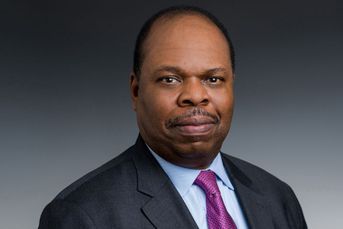Private-equity funds seek indie B-Ds
Parthenon Capital Partners’ pending acquisition of H.D. Vest Financial Services shows that private-equity funds are still interested in…
Parthenon Capital Partners’ pending acquisition of H.D. Vest Financial Services shows that private-equity funds are still interested in the independent-broker-dealer industry, despite its notoriously thin margins and increasing compliance costs.
H.D. Vest, owned by banking giant Wells Fargo & Co., is the third large independent broker-dealer to be acquired by a private-equity fund in the past six years. The first — and most notable — was LPL Financial (now LPL Holdings Inc.), which was bought by Hellman & Friedman LLC and Texas Pacific Group in 2005.
Last year, Lightyear Financial LLC acquired three broker-dealers from ING Groep NV and rebranded them Cetera Financial Group Inc.
H.D. Vest, which has 4,982 advisers who are primarily tax professionals, was the 19th-largest independent broker-dealer in the nation, with $241 million in revenue at the end of last year, according to data compiled by InvestmentNews.
Terms of the sale, which was announced June 29, weren’t disclosed.
In an industry that is consolidating and seeing a steady number of broker-dealers exit the business, firms on the block will see “more interest from private-equity and hedge funds in general,” said Scott Smith, an associate director for Cerulli Associates Inc.
Those investors will “see the mar-gins there and think, “We must be able to improve that,’” he said.
But private-equity firms will likely continue to concentrate on large independent broker-dealers because scale is important to the bottom line, industry observers said. Such firms commonly want to double the profitability of the company they buy within five years, and large broker-dealers such as LPL and Cetera make that possible.
After its initial public offering last November, “the success of LPL is getting attention,” Mr. Smith said. “The H.D. Vest advisers are a good distribution channel that hasn’t been maximized yet, and there’s good room for improvement there,” he said, noting that the industry has made such statements about certified public accountants for years.
Private-equity funds will continue to invest in independent broker-dealers because “it’s a good business to be in,” said Jeff Auld, chief executive of SagePoint Financial Inc., one of three broker-dealers in American International Group Inc.’s Advisor Group network.
“The margins are so thin, and with the demands for supervision and technology increasing, it just takes scale to be competitive,” he said. “Small firms are going to struggle to keep up with expectations of regulators and customers, and private-equity firms probably plan on acquiring more broker-dealers to make the investments pay off.”
For a private-equity firm to buy an independent broker-dealer, the buyer would have to believe that financial advisers’ leaving wirehouses for independent firms is a long-term trend, said Christopher Pike, managing director at Advent International Corp., a private-equity firm.
“The larger wirehouse firms are not looking to buy stuff, so maybe private-equity funds are coming into their space,” he said. “The wirehouses are not acquisitive, so perhaps there are not that many strategic buyers right now, and there are private-equity funds with cash.”
The biggest independent broker-dealer on the block remains Securities America Inc., which has 1,800 representatives and advisers, and annual revenue close to $400 million. Its owner, Ameriprise Financial Inc., put the firm up for sale in April after negotiating a $160 million settlement with investors who bought allegedly fraudulent private placements from the firm’s brokers between 2003 and 2008.
Although private-equity firms most likely have kicked the tires at Securities America, it isn’t clear whether one will wind up owning the firm, industry observers said.
Wells Fargo put H.D. Vest up for sale in May after concluding that it didn’t fit closely enough with the large retail-brokerage business it acquired when it bought Wachovia Corp. in 2008. Owner Herb D. Vest sold his firm to Wells Fargo in 2001 for $128 million.
Parthenon, meanwhile, owns no other broker-dealers, according to its website, though it does list financial services companies such as insurers and commercial banks among its investments.
A spokeswoman for Parthenon said that no one was available to comment about the transaction.
The average H.D. Vest adviser produces about $48,000 a year in fees and commissions, a level of production below what many independent broker-dealers would want. The firm, however, does have a cadre of large-producing brokers, with 47, or a little under 1%, producing more than $500,000 in fees and commissions last year, according to InvestmentNews data.
Roger Ochs, chief executive of H.D. Vest, will continue to run the firm, Wells Fargo and Parthenon said in a statement.
“There will be no changes to the H.D. Vest leadership team or home office staffing levels as a result of this transaction,” he said in the statement, adding that the firm’s advisers will also see no changes.
For example, H.D. Vest will continue to clear with Wells Fargo’s clearing unit, First Clearing Correspondent Services.
The deal is expected to close at the end of September.
E-mail Bruce Kelly at [email protected].
Learn more about reprints and licensing for this article.








